Healthcare professionals that use specialized software for their practice often face challenges, such as technology infrastructure problems that prevent the software from working with needed devices, software updates that interrupt working hours, and lost time when calling support for troubleshooting. These challenges can cause slow downs in business operations and patient care and translate to the practice not being able to see as many patients as it optimally could. To help alleviate these problems, healthcare practices can work with an IT consultant that specializes in healthcare and knows their unique software and how to best service its common problems. In this article, we want to outline three of the best ways an IT consultant can help support your healthcare-specific software!
Infrastructure Maintenance

The healthcare-specific software that a practice uses to track patient information and practice operations needs to communicate with a number of devices across the network to function properly. For example, each device running the software must be able to communicate with the office’s server reliably, and any supporting services the software relies on must be up to date and configured correctly in order to provide adequate service. An IT consultant can take over monitoring and maintaining the infrastructure needed to support your practice’s software. This means that server maintenance, device configuration, and software updating may be handled by a reliable IT expert so healthcare providers can focus on their practice.
Detailed Guidance

While many smaller practices will have a few patient rooms with devices that use their healthcare-specific software, a practice can grow to require more desktops or laptops in service for providers to use. An IT consultant that specializes in healthcare can provide guidance and installation help when more devices connect to the software and other office infrastructure. This way, you know that your devices are set up correctly and integrate well with other parts of the network to help ensure smooth service for your patients. This also allows for your new devices and endpoints to be setup securely, so gaps in your cybersecurity are less likely to appear.
Support Around the Clock

When something goes wrong with your software, troubleshooting and contacting support can take up valuable time with patients and sometimes grind the practice to a halt until the problem is identified and resolved. By working with an IT consultant, healthcare professionals can take a lot of this time back because your consultant can troubleshoot problems and talk to support for you. While the practice may need to rely on non-digital means of gathering information in the meantime, your practice can still see patients and keep set appointments while your partner in IT works diligently to resolve the problem and get your software back up and running.
Summary
Even though healthcare professionals require practice-specific applications to get work done, this doesn’t mean that an IT consultant can’t help keep your office running efficiently. A consultant experienced with healthcare IT can support the infrastructure needed for your application, support new devices and services that rely on the software, and provide support anytime the application goes down. Our team here at Robinett Consulting wants to be the technology experts that support your practice and allow you to focus on your healthcare expertise, and our cybersecurity professionals are ready to provide you with a complimentary consultation today!




